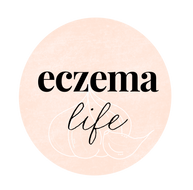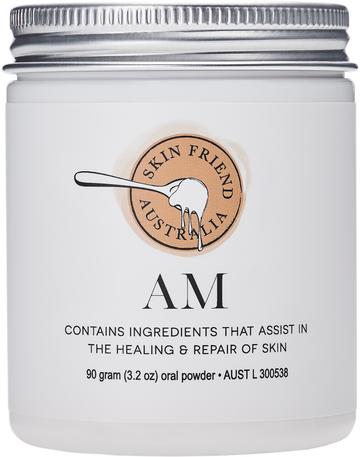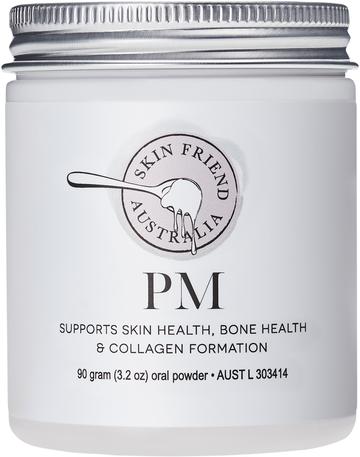5 Surprising Ways Vitamin E Helps Eczema

Vitamin E is the predominant antioxidant in healthy skin so if you have skin problems it's important to ensure there is enough natural vitamin E in your diet.
Here are 5 surprising ways vitamin E supplementation can help eczema:
1. Vitamin E supplementation can decrease the allergy marker immunoglobulin E (IgE) in allergy sufferers and it improves immune responses. Supplementation of vitamin E significantly enhances both cell mediated and humoral immune functions in humans according to Turkish researchers (note all references are listed at the end of the article). So take natural oral vitamin E along with vitamin C and zinc to enhance immunity to infections.
2. A clinical trial published in the International Journal of Dermatology revealed that nearly 50 per cent of adults with atopic dermatitis who were treated with vitamin E daily for eight months showed great improvement (compared to only one in the placebo group); and there was almost complete remission of atopic eczema in seven people taking the vitamin E, but none in the placebo group (four of the adults treated with vitamin E worsened*, compared to 36 in the placebo). *a worsening of symptoms may have been due to hidden additives which are common in non-organic vitamin E.
3. Vitamin E is anti-inflammatory as it blocks leukotriene formation in the body. Leukotrienes are implicated in the formation of eczema, and vitamin E works by decreasing the production and release of pro-inflammatory prostaglandins which trigger leukotrienes.
4. Vitamin E is a fat-soluble antioxidant that helps to protect skin cells against free radical damage. It works by guarding the oils within your skin (polyunsaturated fatty acids in the cell walls), according to research published in the American Journal of Clinical Nutrition.
5. Vitamin E supplementation, especially when combined with vitamin C, reduces fatty liver disease. Fatty liver disease is common in people who are alcoholics and people who eat too much sugar. However, non-alcoholic fatty liver can occur in 17 to 31% of children with eczema according to two Japanese clinical trials by Dr. Kimata from the Department of Pediatrics and Allergy at the Ujitakeda Hospital in Kyoto. "Supplementing with vitamin E and vitamin C is a safe, inexpensive and effective treatment option in patients with fatty liver disease", according to Turkish researchers.
FACTS ABOUT VITAMIN E
- Vitamin E should be taken with synergistic nutrient vitamin C as it recycles vitamin E, helping it to circulate for longer in your body.
- Vitamin E deficiency can be caused by fat malabsorption disorders or by genetic abnormalities that affect vitamin E transport.
- Research has demonstrated that supplementation of vitamin E (α-Tocopherol) can improve immunity by enhancing the T cell-mediated immune response (research was conducted on ageing people).
Food Sources of Vitamin E
The following is a list of food sources of vitamin E with the content of vitamin E listed in milligrams:
- 20ml (1⁄2% oz) sunflower oil, 9.8mg
- 100g (31⁄2oz) cabbage, 0.2–7mg*
- 100g (31⁄2oz) sweet potato, 4.6mg
- 150g (5oz) grilled salmon, 3.5mg
- 100g (31⁄2oz) prawns, 2.9mg
- 1 cup cooked soybeans, 2.2mg
- 1 cup cooked chickpeas (garbanzo beans), 2mg
- 100g (31⁄2oz) canned red salmon, 2.1mg
- 100g (31⁄2oz) canned tuna in oil, 1.9mg
- 100g (31⁄2oz) canned pink salmon, 1.5mg
- 100g (31⁄2oz) brussels sprouts, 1mg
- 100g (31⁄2oz) leeks, 0.9mg
- 100g (31⁄2oz) lettuce, 0.6mg
- 1⁄2 cup raw carrots, 0.4mg
(*Green outer leaves of cabbage contain 7mg vitamin E; the white inner leaves have only 0.2mg)
Is Supplementation Necessary?
Vitamin E from natural food sources is called ‘d-alpha-tocopherol’ and it’s more potent than the synthetic form. People with eczema, often have trouble absorbing nutrients from food therefore supplementation may be necessary.
Vitamin E dosages for eczema sufferers (in supplement form)
- Adult: 40mg
- 5-17 years: 20mg
- 1-4 years: 10mg
- 0-12 months 4-5mg (from breastmilk or infant formula)
Supplements to avoid:
Artificial vitamin E: Any supplement that lists vitamin E as ‘dl-alpha-tocopherol’ should be avoided because 'dl' indicates it is an artificial form of vitamin E.
Natural vitamin E: Avoid vitamin E that contains hidden additives. Look for "additive-free vitamin E" or "organic vitamin E".
Is there some people who cannot take supplements or vitamin E?
As vitamin E and vitamin C thin the blood do not take vitamin E if you are on blood-thinning medications such as Warfarin/aspirin or if you are undergoing surgery. If you are taking medications, consult with your doctor before taking supplements.
This is an edited extract from The Eczema Diet by Karen Fischer.
Products
At Eczema Life, we recommend nutritionist Karen Fischer's low food chemical program (The Eczema Detox) along with additive-free supplements for skin health and wellbeing. Click on the images to view more details:
References & supporting research
Fischer, K., 2014, The Eczema Diet, Second edition, Exisle Publishing.
Tsoureli-Nikita, E., Hercogova, J., Lotti, T. and Menchini, G., 2002, ‘Evaluation of dietary intake of vitamin E in the treatment of atopic dermatitis: a study of the clinical course and evaluation of the immunoglobulin E serum levels’, International Journal of Dermatology, vol. 41, no. 3, pp. 146–50.
Vitamin E and Vitamin C and non-alcoholic fatty liver disease reference >
Packer, L. (1991). Protective role of vitamin E in biological systems. The American Journal of Clinical Nutrition, 53(4), 1050S-1055S.
Kimata, H. (2006). Increased incidence of fatty liver in non-obese Japanese children under 1 year of age with or without atopic dermatitis. Public Health,120(2), 176-178.
Pekmezci, D. (2010). Vitamin E and immunity. Vitamins and hormones, 86, 179-215.
Wintergerst, E. S., Maggini, S., & Hornig, D. H. (2006). Immune-enhancing role of vitamin C and zinc and effect on clinical conditions. Annals of Nutrition and Metabolism, 50(2), 85-94.




